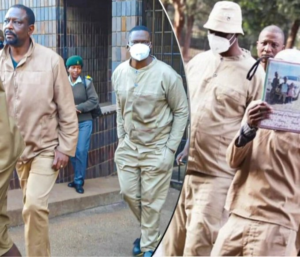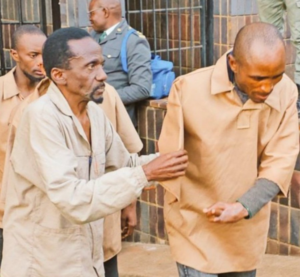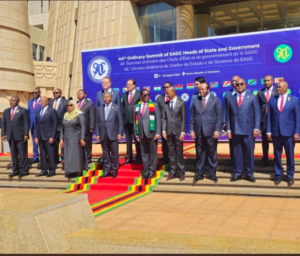ZIMBABWE’S POLITICAL ARENA IN CHAOS: COURT ORDER DEFIANCE AND OPPOSITION SABOTAGE

In the complex and often turbulent world of Zimbabwean politics, a recent development has thrown the opposition’s struggles into sharp relief. Opposition activist Sengezo Tshabangu and his state security-run cabal, who have been accused of trying to undermine the opposition Citizens Coalition for Change (CCC) for their own gain, have been caught in a legal and political storm. This revolves around the controversial recalls of Members of Parliament and Senators, a move seen as an attempt to weaken the opposition’s standing against the ruling ZANU-PF party.
The heart of the controversy lies in the timing of these recalls. Tshabangu’s group claims that their actions did not violate a High Court Justice Tawanda Chitapi’s interdict, as the letters initiating the recalls were issued on November 10, 2023, prior to the court’s intervention. However, these recalls only took legal and political effect on the afternoon of their announcement, well after the court order had been issued. This sequence of events points to a clear defiance of the legal process, raising questions about the integrity of the recalls and the motivations behind them.
Recalls in Zimbabwe are not just a matter of administrative procedure; they are a complex interplay of legal and political processes that must pass through Parliament and other relevant institutions. They are not meant to be the outcome of vindictive whims or the manipulative tactics of individuals with ulterior motives. Yet, this appears to be what unfolded, with Speaker of Parliament Jacob Mudenda and others allegedly proceeding with the recalls in direct defiance of the court order.
This defiance was made evident when Mudenda’s lawyer, Shingirai Hoko, as directed by Chitapi, advised against proceeding with the recalls pending a court determination on an urgent application brought forward by CCC. This application, set to be heard on November 20, names Tshabangu, Mudenda, Senate President Mabel Chinomona, and Local Government minister Winston Chitando as respondents. Notably, Chitando did not appear in court, as no councillors were recalled.
The case, represented by Obey Shava for CCC and Lewis Uriri for Tshabangu, with Hoko representing Mudenda and Chinomona, is a pivotal moment for Zimbabwe’s political landscape. The recall affected 18 legislators, a significant number in the context of Zimbabwe’s Parliament. The outcome of this hearing could have profound implications for the balance of power and the rule of law in the country.
The underlying issue is the alleged contempt of court by Tshabangu and his associates. By dispatching recall letters on November 10 and then enforcing them after the court’s interdict, they seemingly acted in blatant disregard of the legal process. This act not only undermines the judiciary’s authority but also poses a serious threat to the democratic fabric of Zimbabwean politics.
As Zimbabweans await the hearing’s outcome, the situation underscores the fragile nature of the country’s democratic institutions and the ongoing struggle for political power. The actions of Tshabangu and his group, whether driven by personal gain or political strategy, have cast a shadow over the nation’s commitment to the rule of law and the principles of democratic governance.




